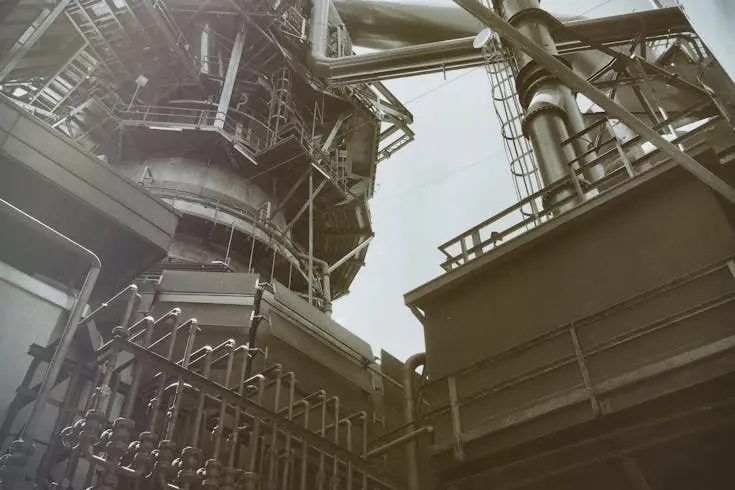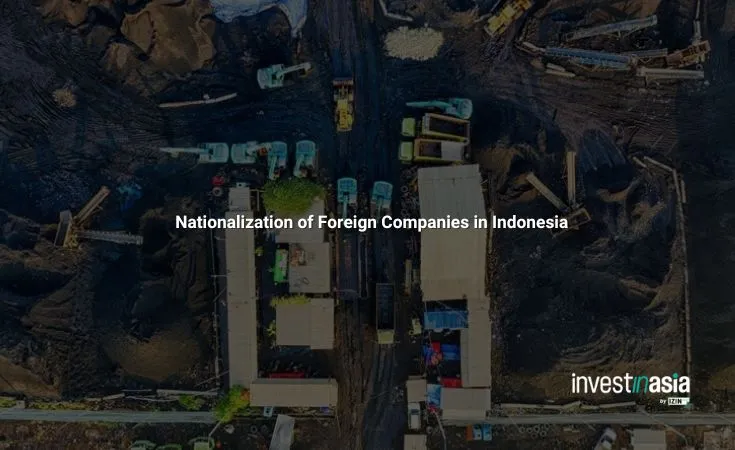Foreign investors in Indonesia often ask whether their assets are at risk of being nationalized. The bottom line: traditional nationalization is now extremely rare and heavily restricted by law. However, investors must still navigate complex divestment obligations, particularly in sectors like mining, and comply with evolving regulations.
Historical Context of Nationalization


Indonesia’s experience with nationalization dates back to the late 1950s and 1960s. Under Law No. 86 of 1958, the government nationalized over 246 Dutch companies and expelled tens of thousands of Dutch citizens. During Sukarno’s Guided Democracy era, this policy escalated with widespread takeovers of foreign firms between 1963 and 1965.
These measures were driven by economic nationalism and the BERDIKARI principle (standing on one’s own feet), aiming to reduce foreign dominance over strategic industries.
Current Legal Framework
Today, foreign investors operate under a far more structured and protective legal system. Law No. 25 of 2007 on Investment ensures:
- General protection: The state cannot nationalize without proper legal process.
- Compensation guarantee: Any nationalization must be paired with fair, market-based compensation.
- Arbitration rights: Disputes over compensation can be resolved through arbitration, often at the international level.
This law reassures investors that arbitrary expropriation is no longer a threat.
Also read: What Is the Legal Basis for Foreign Investment in Indonesia?
Divestment Requirements in Strategic Sectors
While outright nationalization is rare, Indonesia imposes mandatory divestment rules in certain industries.
In the mining sector, foreign-owned companies must divest 51% of their shares to Indonesian entities within a set timeline. This policy was central to the Freeport Indonesia case, where PT Inalum and regional governments acquired majority ownership of the Grasberg mine in 2018. Importantly, this was a divestment transaction, not forced nationalization.
Also read: Complete Guide to Divestment of Foreign Company Shares in Indonesia
International Criticism and Investment Climate


Despite protections, Indonesia’s divestment obligations have drawn criticism. For example, the United States Trade Representative highlighted how Indonesia’s mining rules may discourage foreign direct investment. Still, the government maintains these policies as a way to strengthen resource sovereignty while continuing to court global investors.
Also read: Comparing Indonesia’s Foreign Business Entry Barriers vs. Other ASEAN Countries
The Future Outlook for Investors
Looking ahead, outright nationalization is unlikely due to:
- Strong investor protection laws
- Ongoing need for foreign capital
- International arbitration frameworks
- Commitments in bilateral investment treaties
Instead, Indonesia favors contract renegotiation and divestment policies rather than wholesale takeovers.
Navigating Indonesia’s Investment Landscape
For investors, the safest entry point remains establishing a PT PMA (foreign-owned limited liability company). This structure ensures compliance with Indonesian investment law while allowing foreign shareholders to participate in open sectors.
This is where expert guidance becomes essential. InvestinAsia’s PMA Registration Service helps foreign investors establish compliant businesses in Indonesia. Our team manages the entire process—from licensing and structuring to ensuring your company meets regulatory requirements.
With professional support, investors can minimize legal risks while maximizing opportunities in Southeast Asia’s largest economy.
You can also enjoy special package prices for PT PMA and KITAS services.
Ready to start your business and investment in Indonesia? Chat with us now for FREE consultation!
FAQs
Is nationalization still a risk for foreign companies in Indonesia?
No. Nationalization is now legally restricted and requires fair compensation, though sector-specific divestment rules apply.
Which sectors are most affected by divestment requirements?
Mining and natural resources, where foreign companies must divest 51% shares to Indonesian participants.
How are investors protected under Indonesian law?
Law No. 25 of 2007 guarantees non-discrimination, compensation, and arbitration rights for foreign investors.
What is the difference between divestment and nationalization?
Divestment requires partial transfer of shares to Indonesian stakeholders, while nationalization implies complete state takeover.
How can foreign investors start a business in Indonesia safely?
By registering a PT PMA through trusted advisors like InvestinAsia, ensuring full compliance with local laws.




